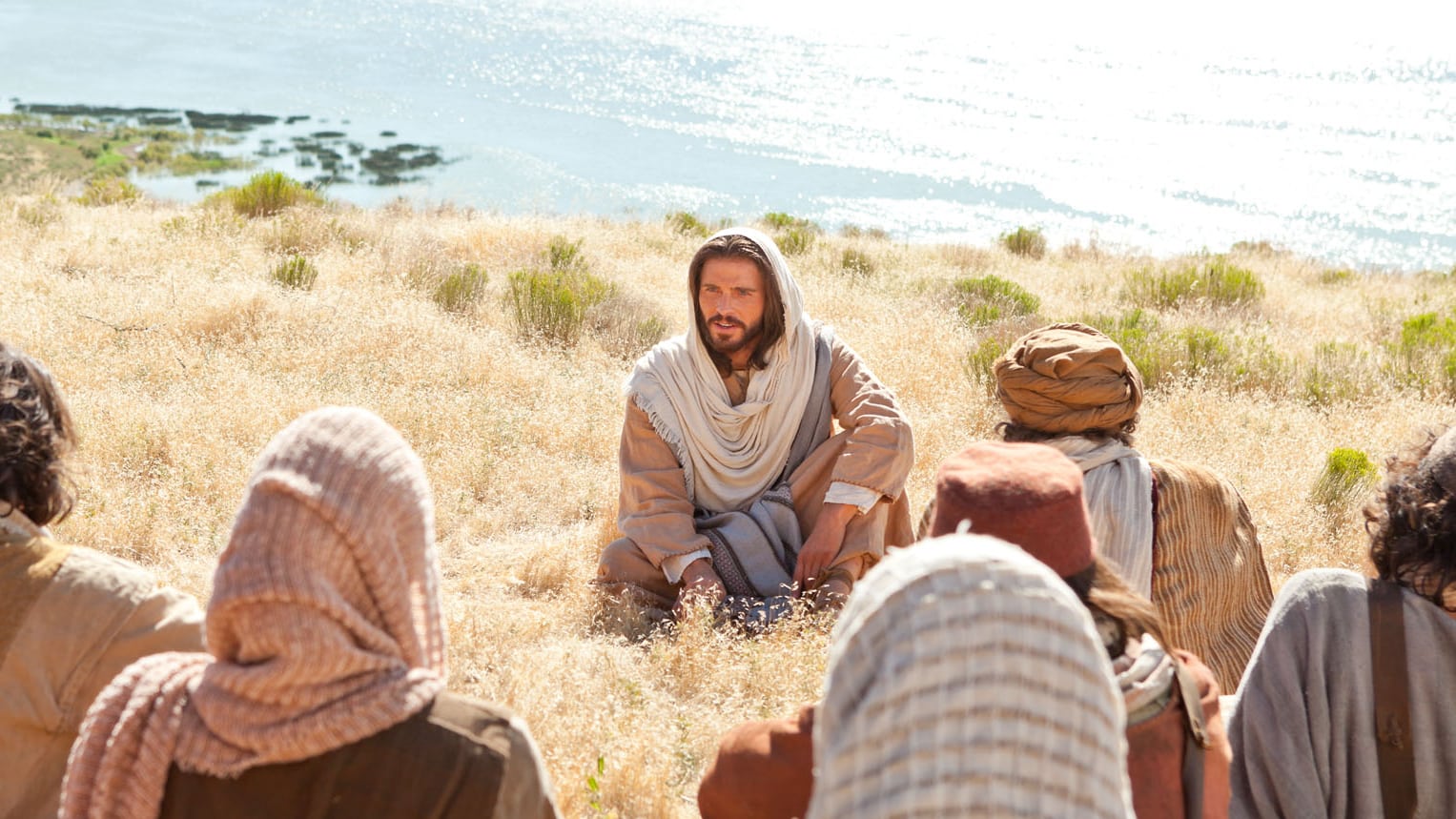The Pharisees desired to attain self-worth by jockeying for the places of honor at the banquets attended also by Jesus. The Gospel, elsewhere, tells us that they always did that. They coveted the more honorable places as well as respect anywhere, anytime they were in public.
Today, Jesus teaches all a lesson of genuine self-worth. Self-worth is not attained by drawing attention upon ourselves, by being seated in high places, by pointing out to others what we did right, but by the Wisdom of God who cannot fool us and even less be fooled by appearances.
Humility, so praised by our reading from Sirach (3:17-18, 20, 28-29), and so admired by everyone is a word very close to the Latin word humus: soil, dirt. It is an inescapable reminder that we, by ourselves, are dirt, are dust; and that, even in our finest moments of success and glory; we can be soaring from the ground only if God breathes His Spirit in us (cf. Genesis 2:7).
The Lord gives us worth; the Lord finds us worthy; the Lord remakes us people of infinite worth in the blood of His Son. He is the One who humbles and exalts. The honor bestowed by friends and cronies is unreliable. Only the honor that, one day, the Lord will bestow on us is what counts.
In the episode recorded in our Gospel passage (Luke 14:1, 7-14), Jesus was not just giving a lesson on table manners or etiquette. Jesus was outright insolent and rude in embarrassing his host in front of all the guests. Speaking of direct confrontation and even provocation, on a Sabbath, Jesus had first deliberately cured a sick man in front of all those experts of the Law. He had done so to prove to them that God’s love for His people was infinitely superior to all the laws, even the supreme Law of the Sabbath. Thus, he had claimed for himself the authority to show God’s love by attending to the needs of a sick person as evidence of love that is free from the petty confinements of the Law. Then, he was rude enough to unmask his fellow guests’ pride and craving for recognition, as they aspired for the most honorable places. Finally, he, Oriental, in front of Orientals, embarrassed his host by telling him that he had done all the inviting wrong. He was supposed to have invited not those of his rank who could have easily repaid him, but the rejects of society who could have never been able to return the favor.
Now, why would Jesus go through so much trouble? Why would he intentionally fuel hatred against himself and make more enemies? Because, after this life, which is oftentimes a game of deception, not excluding self-deception, a game of appearing good rather than being good, a game of finding ways to get honor and recognition rather than of deserving them, the Lord will assess our true value. There, on Judgment Day, before Him, true honor or true disgrace will be meted out. And this is what should be our ever-consuming concern. Only then will our true worth be known by all.
Jesus, the first among the righteous, was exalted by the Father precisely because he humbled himself and became our servant to the point of death (cf. Philippians 2: 6-9).
Self-esteem is not to be found in feeling good about ourselves because people compliment us and think highly of us.
Self-esteem is to be earned by doing good, by serving, by loving, by forgiving from the bottom of our heart. In a nutshell, self-esteem is to be found in imitating Christ.
Jesus, of course, as usual, preaches by example.
- He, God, equal to the Father in everything, becomes one like us. He is born without any honor; he lives in an obscure hill town for thirty years; he associates with the lowest elements of society; he makes friends with rejects; he is slandered repeatedly; he is falsely accused of everything under the sun; he is condemned by a kangaroo court; he dies the death of a criminal.
- He, surrounded by myriad of angels, comes to serve and not to be served (cf. Matthew 20:28). He washes his disciples’ feet (cf. John 13:14). He is among them as the one who serves (cf. Luke 22:27).
Hence, the genuine, undeniable worth of a person is to be found in willingness to serve and to serve joyfully.
Jesus truly practiced what he preached. He made all those enemies and, by doing so, he wrote his own death warrant with courage, in order to serve our fundamental need for salvation.
Today, he takes the lowest seat once again. He hides in the features of the least among us, here assembled. He also hides himself under the most humble species of bread and wine. His humility is such that, alas, many Catholics do not even believe in his real presence in the Eucharist.
Yet, he is also the gracious and magnanimous host. We are truly the poor, the crippled, the lame and the blind. We are those so easily worried about looking good and being recognized by friends, cronies and influential people.
There is no way we can ever repay him for this unmerited favor. So, why not rejoice that he does not expect to be repaid by us?
Without his grace, there is no way we can die for him or do anything worthwhile.
Therefore, like St. Paul, we should boast in our infirmities and limitations and weaknesses (cf. 2 Corinthians 11:30) that enable us to be invited to Jesus’ banquet of eternal life. We should also rejoice that we can find him for sure in the least of our brothers and sisters. We should rejoice that by opening the door of our home and of our heart to the neediest, we are opening our heart and our door to him.
Conversely, we should never forget that, if we are self-absorbed, if we look for honor and recognition, his seat will remain empty. Thus, strengthened and motivated by Holy Communion with him, we should welcome any opportunity to serve, to love, to care for each other counting, with hope, on the assured bestowal of honor by him in the resurrection of the righteous.








